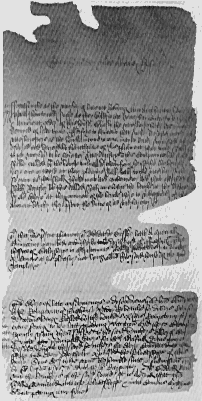This is from the booklet The Inner Temple: A Brief Historical Description by J. H. Baker, K.C., LL.D., F.B.A. published in 1991 and some practices have changed since this booklet was published. For current practice see the Inn’s website.
None of the inns of court has ever been incorporated. They are voluntary associations, without charters or statutes, their constitutions based on custom and self-regulation. There is no permanent head of house, but each year a Treasurer is elected to preside over the society. When first we learn anything of the constitution of the Inner Temple, at the end of the fifteenth century, it was ruled by a Treasurer and three governors, elected by the ‘society’ or fellowship. As in all the medieval inns of court, the fellowship consisted of all the members of masters’ commons, including barristers as well as benchers. In the Tudor period, however, the title of master came to be appropriated to the benchers alone. The Masters of the Bench were considered in the early sixteenth century as associates of the governors, and by the time of Elizabeth I had taken over from them the control of the Inn, as a governing body acting under the chairmanship of the Treasurer. The last election of governors was in 1566.

The most solemn business meetings of the Inn are called ‘parliaments’, a term also used in the Middle Temple. Records of the Inner Temple parliaments survive from 1505 to the present. Between parliaments, decisions are made at meetings called ‘bench tables’. The Inn has books of Bench Table Orders from 1668 to the present.
New benchers have always been elected by the Bench of the Inn, and the decision whether or not to elect has been held to be unreviewable (Re Abraham Hayward K.C., 1845). Calls to the Bar may once have been less formal, taking place at moots. But in 1556 it was ordered by the parliament that utter barristers should be called only by the Bench, ‘and that all those which shall thereafter be thus called shall come before the Bench at the board’s end or elsewhere at the appointment of the Bench, there to understand of the ancient bencher there present the duty of an utter barrister’. This order is still in effect observed; calls to the Bar take place at parliaments, held at the board (or table) in open hall, with a suitably edifying charge from the ‘ancient bencher there present’ (usually the Treasurer). The benchers also have the power to disbench and disbar for misconduct. Appeals against such disciplinary decisions lie to the judges as visitors; the first recorded instance of such an appeal was in the seventeenth century.
In 1967 the inns agreed to form a Senate of the Four Inns to coordinate policy and practice, especially in relation to education and discipline; this was reconstituted in 1974 as the Senate of the Inns of Court and the Bar, which also took over the functions of the old Bar Council. The regulations for call to the Bar, and the control of professional discipline, are now for the most part delegated to the Senate.
Next chapter: Keeping Term
Back to: Introduction

